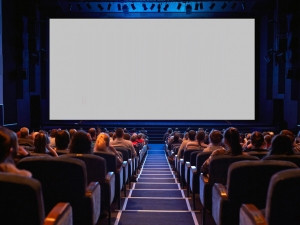
In the face of fast-shifting media consumption patterns across the globe, movie theatre revenue will remain relatively stable, according to Deloitte's Technology, Media and Telecommunications (TMT) Predictions for 2016, locally announced in Johannesburg on Wednesday.
Deloitte representatives in Johannesburg joked that movie theatres win this year's "award" for the best-surviving form of traditional media consumption in a digitising age. "Compared to what has happened to the DVD business, the DVD rental business, and other traditional media, cinema is doing better than most," says the TMT Predictions report.
The annual predictions, now celebrating their 15th year, focus largely on the rapid changes in how consumers interact with multimedia and technology in their daily lives.
The report elaborates that, although overall box office revenue fluctuates unpredictably from year to year based on the success of a small number of highest-grossing films, movie theatre revenue as a whole will decline at a minimal pace.
While the ease of piracy and both legal and illegal video streaming have had an effect on movie box offices, the facilities - unlike other traditional media outlets - maintain a relatively strong youth audience, the report says. "The average North American... attended just under four movies per year in 2015, while the average 12- to 24-year-old [North American] went to 6.3 movies."
The report suggests that traditional and digital media users alike enjoy the physical and social experience of going to the cinema, and notes the rise of forms of cinema that capitalise on this "experience" factor, such as 3D and IMAX.
Deloitte also notes that these trends are not uniform around the world, with China's box office growing 49% year-over-year as of December 2015, and expected to surpass the North American box office market by 2017 or 2018.
'Erosion, not implosion' for US TV
Where television-based video consumption is concerned, Deloitte's report predicts that "despite many forecasts of the imminent collapse of the traditional advertising and subscription-funded TV model, it is likely to erode at a slow, steady and predictable rate".
In the US, the pay-TV market will see decreases in the number of pay-TV subscribers and average monthly pay-TV bills, as well as in the percentage of national pay-TV penetration, the report says.
While traditional TV consumption is declining, it is "not dying, disappearing, or irrevelant", asserts the report, noting that as of May 2015, TV reached 87% of the US's adult population, who watched "about four times as many minutes [of TV] as adult Americans spend... in apps or browsing the Web."
Billion dollar VR
Deloitte also predicts that virtual reality (VR) will see "its first billion dollar year in 2016". About $700 million of which will come from hardware sales, and the remainder from content, the report continues.
While the freshly emerging technology has multiple potential applications in the long term, the vast majority of immediate growth will be driven by video games, says the report.
"The majority of VR's revenues in 2016 will likely be driven by a base of tens of millions of core gamers," although "anyone with a smartphone" can now try out an accessible variant of VR, it notes, for example via Google Cardboard and numerous free apps.
'Bigger and smaller than you think'
With regards to gaming, the TMT Predictions report predicts that mobile devices (including tablets) will surpass PCs and consoles as the world's leading gaming platform by collective revenue.
Yet this position could give off false impressions as to how lucrative the mobile gaming industry is, it continues. While Deloitte forecasts average revenues of $4.8 million per console game on the market and $2.9 million per PC game, the average mobile game will only rake in $40 000, although this figure varies more for mobile games producers than it does for PC or console games-makers.
The report also states that while global eSports revenues will grow 25% to $500 million in 2016 and will attract a 150 million-strong audience of regular and occasional viewers, the industry is "bigger and smaller than you think," as it will still represent only a tiny fraction of global sports revenues.
Share